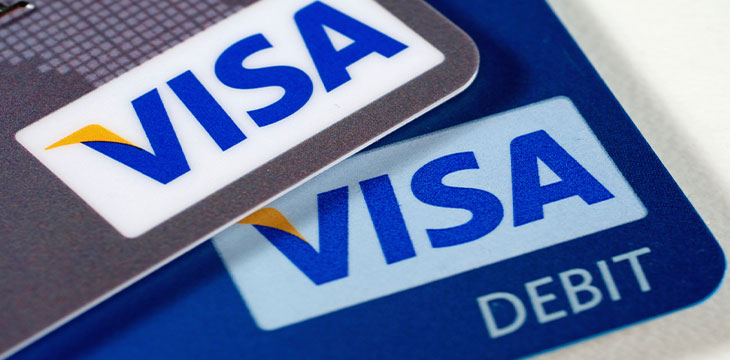|
Getting your Trinity Audio player ready...
|
Credit card company VISA is waiting for cryptocurrencies to be more widely used before making them a business priority.
CEO Al Kelly said in a CNBC interview with Jim Cramer that “there has to be some market that it becomes somewhat like a fiat currency in order for us to be comfortable” investing in cryptocurrencies.
Kelly said that a sign of the market being big enough to warrant the company’s focus was when “crypto starts moving from being more of a commodity to actually really being a payment instrument.” At the moment, he said the industry posed no threat “in the short term to medium term in any way.”
He said that when the market moves in the direction of cryptocurrencies, “we will move in that direction… We want to be in the middle… of every payment flow in the world regardless of how it happens or what the currency is behind it. So if we have to go there, we will go there. But right now, it’s more of a commodity than a payment vehicle.”
The blockchain community sees the advantage of cryptocurrencies like Bitcoin Cash (BCH) as precisely reducing intermediaries for money transfers. BCH transactions are currently recorded in 32MB blocks, although this is set to go up to 128MB as the network upgrades in November. Blockchain research and development firm nChain is already offering the Bitcoin SV (Satoshi Vision) client version 0.1 through GitHub, with default maximum block size of 128MB, which further increases the number of transactions possible on the BCH blockchain.
So far, VISA’s foray into cryptocurrencies has been limited to allowing companies to facilitate cryptocurrency debits for payments. Competing firm Mastercard has also dabbled in the blockchain business, currently studying how the technology could improve its payment systems.
Mastercard has also filed a patent for blockchain to be used in the management of fractional reserves, where loans could be made multiple times that of the amount deposited, as done in the modern fiat banking system. In its patent application, the company notes how blockchain’s ability to allow for payments while keeping other personal information safe and secure could be beneficial if such transactions could be sped up. “The anonymity of the blockchain may leave the payee at a disadvantage, because the inability for the payee to identify the payer may prohibit the payee from utilizing various risk or fraud detection methods. Therefore, many entities… may be wary of accepting blockchain currency for products and participating in blockchain transactions,” the application read.

 03-01-2026
03-01-2026 




